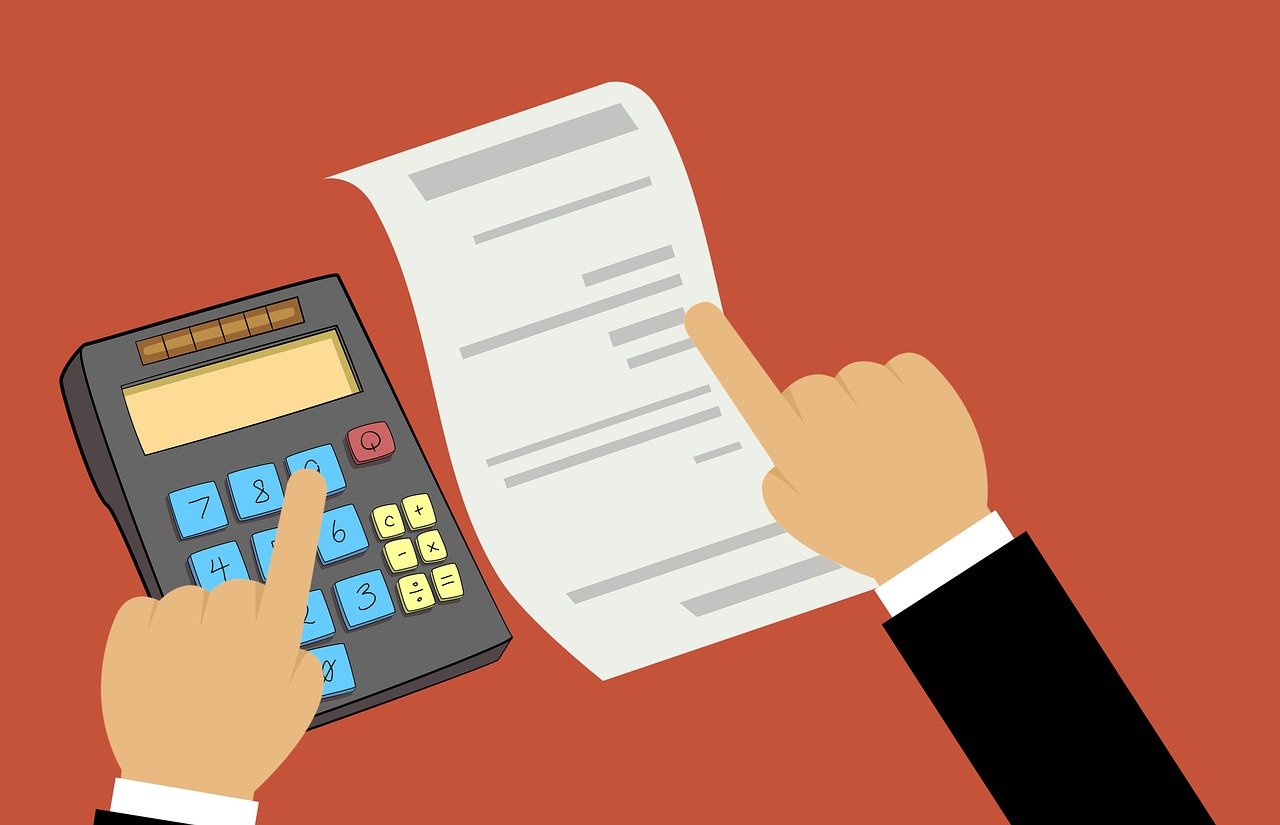Given that the majority of people are surviving from one paycheck to paycheck, budgeting becomes an essential tool to escape financial hardships and establish fiscal security. In the past thirty years, we have witnessed a significant escalation in the costs of housing and healthcare in our country, which has notably impacted our ability to save and prepare for retirement.
Not having a financial strategy or budget can lead to worry and confusion, resulting in splurging, living beyond your means, and continuing harmful cycles. However, incorporating a strong budget into your overall financial consciousness can bring about significant changes. It can not only help you meet your fiscal objectives but also diminish stress and anxiety, enhancing your overall life quality.
Table of Contents
Mapping Out a Budget
Constructing and handling a successful monthly budget involves understanding your income and your spending habits. Your earnings should exceed your expenditures, leaving you enough room to stow away some money each month for savings and retirement. If your balance isn’t quite up to par, it’s time to devise a budget plan.
Kickstarting a Budget Plan
The first step to creating a budget plan is noting down your income and expenses. Connecting your bank accounts to a favoured budgeting app is the simplest approach, but a pen and paper or a spreadsheet program can do the trick too.
Then, separate your fixed expenses from your variable expenses. Fixed expenses, like housing, utilities, insurance, childcare, and loan payments, remain the same each month. Variable expenses, like groceries, entertainment, dining out, vacations, and streaming services, fluctuate. Lastly, don’t forget to include contributions to savings goals like retirement or an emergency fund.
If your expenses outstrip your income, scrutinize your variable expenses to see where you can tighten the purse strings. Afterwards, consider ways to curb fixed expenses, such as relocating to a cheaper neighbourhood or refinancing your debt.
Planning a Budget for Groceries
Budgeting for groceries can be a minefield – after all, we all need to eat. If you’re unsure about how much to set aside for groceries, compare your spending to the USDA’s food plan. Bear in mind that dietary constraints may pump up your grocery bill.
To economize on your grocery bill, try meal planning. Make a weekly plan to cook dishes that share ingredients or use pantry staples. Since meat can be pricey, consider a meat-free meal every Monday to cut down grocery expenses. Bulk buying over single-use packaging can also help you save.
Planning a Budget for a Vacation
A vacation can be an exhilarating savings goal if your budget allows. The first move in planning a budget for a vacation is determining your desired expenditure and selecting your travel dates. If you’re dreaming of a $5,000 beach vacation one year from now, you can divide it into a monthly savings goal of roughly $420.
Hesitant about splurging on an expensive trip? Think about cheaper alternatives like a road trip or keep an eye out for a sweet deal. Budgeting for a vacation means you’ll have the funds at hand when airfares take a dip or that dream ski lodge opens for booking.
Planning a Budget for Rent
To determine your rent budget, apply the 28/36 rule. This budgeting guideline recommends that you should not spend more than 28% of your total income before taxes on housing, or 36% of your overall earnings on debt, which can encompass housing costs, auto loans, or educational debts. Based on this rule, if your monthly earnings are $3,400, your rent cap should be $952 and your total monthly debt payments $1,224.
Sharing accommodations can help cut your housing budget, as can moving to a less pricey area. If relocating to a more affordable place isn’t an option, you might have to explore other areas of your budget for potential savings.
Defining a Successful Budget
Budgeting is a journey that starts with recognizing your financial targets, and understanding your spending and saving patterns. When you truly grasp your income and expenditures, you’re better equipped to manage the predictable and unforeseen financial hurdles life throws your way.
The attitude you bring to managing your finances plays a pivotal role. Crafting a budget is an essential first move to seizing control over your finances. If you’re a budgeting newbie, it might take a few tries for your habits to align. And if you have money habits to refine, the right app can be an invaluable aid.
Exploring Budgeting Apps
A budgeting app is a tool designed to help you make the most of your monthly financial decisions. By consolidating all your financial obligations and aspirations in one place, a budgeting app can offer a clearer perspective on your financial behaviour and choices.
Similar to apps provided by your bank or credit union, a budgeting app might offer additional features like setting financial goals and tracking cash flow across various financial accounts. Budgeting apps can synchronize with your bank and credit card accounts, presenting a comprehensive view of your finances.
Some apps follow a specific budgeting method—like an envelope or zero-based budgeting—while others allow for more flexibility based on your needs. A comprehensive budgeting app can help you keep tabs on spending, handle recurring bill payments, set savings targets, and manage monthly cash flow.
Do Budgeting Apps Deliver?
Budgeting apps are an excellent resource to ensure you’re living according to your budget, not just planning one. They can shed light on your spending habits, pinpointing where your money goes and where you could make changes.
Like any app, its effectiveness largely depends on how you use it. One of the challenges with budgeting, whether it’s done with an app, a spreadsheet, or more traditional means, is committing to not only having a budget but aligning your financial decisions with it. Many people find that the interactivity and automation offered by a budgeting app helps them stay motivated to manage their personal finances.
Choosing a Budgeting App
Selecting a budgeting app may seem trivial compared to other personal finance decisions, but the right one can significantly impact your financial health.
When choosing a budgeting app, consider your needs and goals first. The appropriate budgeting app can offer you valuable insights into your expenses and savings. But before that, identifying your financial goals can help you narrow down your search for the right app.
Beyond your goals, here are a few features to ponder before you commit to a budgeting app:
- Fees: Budgeting apps vary in their charges. While many offer free versions, some have a monthly fee. While a free app might seem tempting, don’t rule out the paid ones. If a budgeting app can notably enhance your financial prospects, it may be well worth the investment.
- Features: Each app offers unique features and advantages, so it might be worthwhile to trial a few different ones to see which fits your needs best. Typical features in leading budgeting apps include: linking all your financial accounts, receiving alerts of upcoming bill payments, devising a budget, credit score tracking, spending tracking, setting up financial goals, and more.
- Security: The protection of your personal information, particularly banking data and logins, is of utmost importance. While most budgeting apps have some level of security, some are more advanced than others. Look into the security encryption level of each app, and features such as 256-bit encryption and multi-factor authentication on their websites can offer added protection.
- Customer service: If you encounter a problem when using a budgeting app, having a reachable technical team can be beneficial. Be sure to find out what customer service options are available, both from the app and from the desktop version, if applicable. It could also be helpful to read reviews to get an idea of other users’ experiences with the app you’re considering.

The Role of Budgeting in Financial Health
Given that a considerable proportion of Americans are living paycheck to paycheck, as per multiple studies, budgeting is a key tool to help individuals escape the cycle of financial uncertainty and establish monetary stability. Over the past three decades, escalating housing and healthcare costs in the U.S. have eroded the disposable income available for savings and retirement.
The absence of a financial plan or budget can lead to stress and feelings of being overwhelmed, resulting in excessive spending, living beyond one’s means, and perpetuating damaging financial cycles. Conversely, establishing a robust budget as part of your overall financial mindfulness can make a significant difference. It can not only aid in achieving your financial goals but also reduce stress and anxiety, thereby enhancing your overall quality of life.
Budgeting is an invaluable strategy for mastering your personal finances. The journey begins with comprehending your earnings and expenditures. It may appear daunting at first, but there are numerous aids, like budgeting apps, that can ease the process and keep you on the right path.
Such apps offer a comprehensive perspective on your financial landscape, empowering you to control your outgoings, boost your savings, and navigate towards your fiscal targets. Opting for an app that meets your needs, guarantees robust security, and offers exceptional customer service is essential. These apps could be the revolutionary tool you need in your financial odyssey, assisting you in living within your budget and mapping out your future.
Keep in mind, crafting a budget isn’t simply a numbers game; it’s a leap towards attaining financial independence and enhancing your lifestyle. By acquiring financial knowledge and making informed choices, you can chart your path to a future of financial stability.

